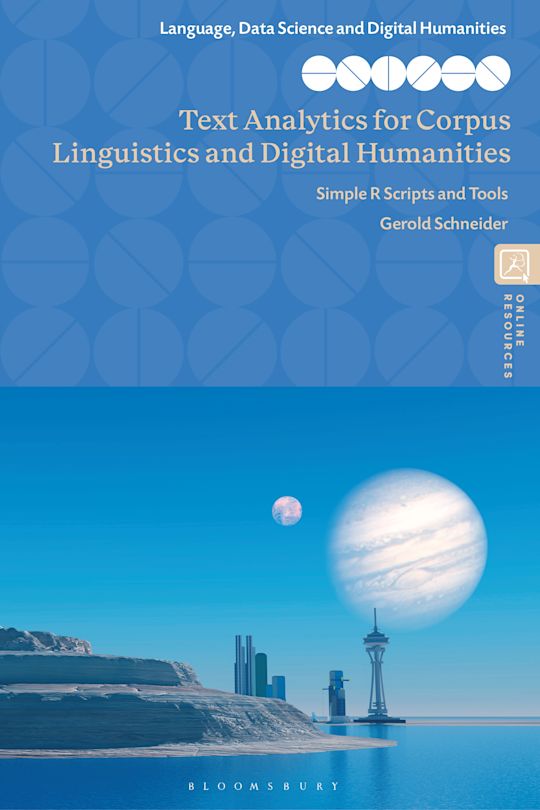Text Analytics for Corpus Linguistics and Digital Humanities: Simple R Scripts and Tools
 Do you want to gain a deeper understanding of how big tech analyses and exploits our text data, or investigate how political parties differ by analysing textual styles, associations and trends in documents? Or create a map of a text collection and write a simple QA system yourself?
Do you want to gain a deeper understanding of how big tech analyses and exploits our text data, or investigate how political parties differ by analysing textual styles, associations and trends in documents? Or create a map of a text collection and write a simple QA system yourself?
This book explores how to apply state-of-the-art text analytics methods to detect and visualise phenomena in text data. Solidly based on methods from corpus linguistics, natural language processing, text analytics and digital humanities, this book shows readers how to conduct experiments with their own corpora and research questions, underpin their theories, quantify the differences and pinpoint characteristics. Case studies and experiments are detailed in every chapter using real-world and open access corpora from politics, World English, history, and literature. The results are interpreted and put into perspective, pitfalls are pointed out, and necessary pre-processing steps are demonstrated. This book also demonstrates how to use the programming language R, as well as simple alternatives and additions to R, to conduct experiments and employ visualisations by example, with extensible R‑code, recipes, links to corpora, and a wide range of methods. The methods introduced
can be used across texts of all disciplines, from history or literature to party manifestos and patient reports.
zum Buch im ULB-KatalogPlus
zum Buch auf der Verlags-Website
Digital Humanities and the Cyberspace Decade, 1990–2001
 Setting out a history of cyberspace and its relationship with the discipline that was to become digital humanities, this book is an accountof an often-forgotten period of internet history in the 1990s when this medium was in its infancy.
Setting out a history of cyberspace and its relationship with the discipline that was to become digital humanities, this book is an accountof an often-forgotten period of internet history in the 1990s when this medium was in its infancy.
It provides a detailed account of the concepts of ‘cyberspace’ and the ‘virtual’, which were characteristic of a perception that using the internet allowed users to enter a separate space from everyday life- a world elsewhere. In doing so, it argues that this libertarian idea of the internet framed it as a new frontier, where the rules of the everyday world did not and should not apply, and where the individual could find freedom. These early norms and the regrettable lack of regulation that was a consequence of them, this book argues, contributed to many of current issues with internet media. including of toxic communication, disinformation and over-commercialisation.
zum Buch im ULB-KatalogPlus
zum Buch auf der Verlags-Website
